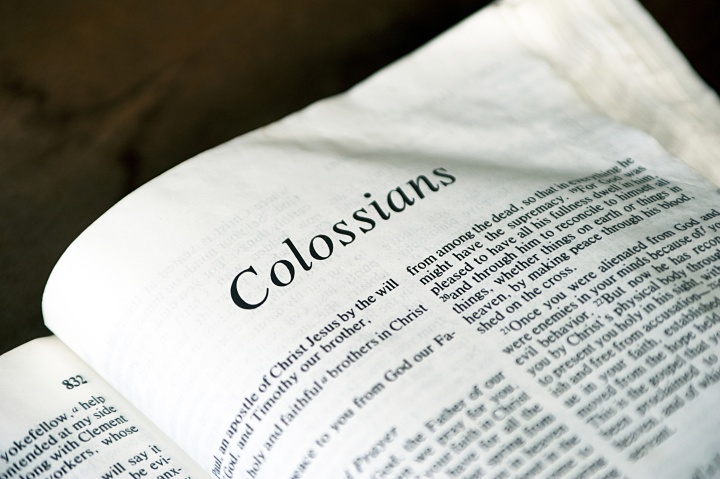Colossians 2 verse 16
Shows Gentile Christians Observed the Biblical Holy Days

"Let no man therefore judge you in meat, or in drink, or in respect of an holy day, or of the new moon, or of the sabbath days: which are a shadow of things to come . . ." wrote Paul in Colossians 2:16-17 (KJV). This passage is often misinterpreted. What does it really say?
Paul was combating a local heresy. False teachers had introduced their own religious philosophy, which was a blend of Jewish and gentile concepts. Their distorted ideas were founded on human "tradition" and "principles of the world," not on the Word of God. Paul warned the Colossians to "beware lest anyone cheat you through philosophy and empty deceit, according to the tradition of men, according to the basic principles of the world, and not according to Christ" (Colossians 2:8).
These false teachers introduced their own rules and regulations for their idea of proper conduct (Colossians 2:20-22). The content of Paul's warning to the Colossian church strongly indicates that these heretics were the forerunners of a major heresy that developed into gnosticism—a belief system maintaining that secret knowledge (gnosis is Greek for "knowledge," hence the term gnosticism) can enhance one's religion. Gnostics claimed to be so spiritual that they disdained virtually everything physical, regarding it as beneath them.
The false teachers in Colosse rejected the physical—the perishable things that could be touched, tasted or handled (Colossians 2:21-22) —particularly when it related to worship. Their philosophy encouraged neglect of the physical needs of the body to attain heightened spirituality. In reality, however, their self-imposed religion did nothing of the sort and accomplished nothing in combating human nature. As Paul wrote, it was of "no value against the indulgence of the flesh" (Colossians 2:23).
The Christians in Colosse obeyed God. They kept His Sabbath and Holy Days, and they rejoiced on them, following biblical instruction (Deuteronomy 16:10-11, Deuteronomy 16:13-14). The heretics condemned the Colossian church for the manner in which the Colossians observed the Holy Days. Notice that they didn't challenge the days themselves. It was the physical enjoyment of them—rejoicing and feasting—that provoked the objections of these false teachers.
Notice Paul's words again: "So let no one judge you in food or in drink, or regarding [Greek meros, meaning 'part,' or 'regarding any portion of'] a festival or a new moon or sabbath" (Colossians 2:16). Paul was telling the Colossians to ignore these heretics' judgments and criticisms about their enjoyment of the eating and drinking aspects of God's festivals.
Rather than showing disregard for the days God established as holy, Paul's comments in this passage actually confirm that the Colossian Christians—who were primarily gentiles (Colossians 2:13)—were observing the weekly Sabbath and Holy Days of God more than 30 years after Jesus Christ's death and resurrection.
Had they not been observing these days, the heretics would have had no basis for their objections to the eating and drinking aspects—the feasting portion—of the Sabbath and the Holy Days. (Read the online Bible study aid booklet The New Covenant: Does It Abolish God's Law?)
